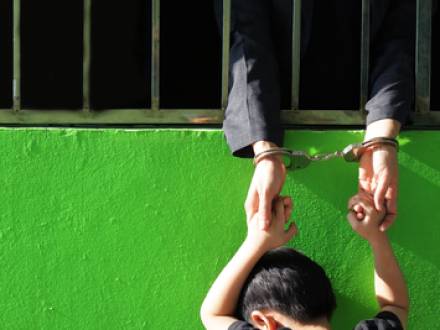Recent Blog Posts
Do Child Support Obligations End at 18 in Illinois Disability Cases?
 Usually, when a child turns 18, the financial obligations of the parent who has paid child support following a divorce end. However, if that child has a mental or physical disability that prevents independent living, the duty to support can continue well into adulthood. Under 750 ILCS 5/513.5, Illinois law allows courts to order ongoing financial support for adult disabled children. To fully understand when and how this support can be requested, as well as how courts determine "disability," requires consulting with an experienced Oswego, IL child support lawyer.
Usually, when a child turns 18, the financial obligations of the parent who has paid child support following a divorce end. However, if that child has a mental or physical disability that prevents independent living, the duty to support can continue well into adulthood. Under 750 ILCS 5/513.5, Illinois law allows courts to order ongoing financial support for adult disabled children. To fully understand when and how this support can be requested, as well as how courts determine "disability," requires consulting with an experienced Oswego, IL child support lawyer.
What is the Legal Framework in Illinois for Supporting Non-Minor Disabled Children?
Since 2016, the statute above has applied when an adult child is mentally or physically disabled and unable to be financially independent as an adult. This support obligation can be initiated or extended by either parent or by the guardian of the disabled child. Support can continue beyond the age of 18, after the child finishes high school, if a court agrees that the adult child is unable to be financially independent.
Parenting from Prison: Illinois Custody Rights Explained
 Being incarcerated does not automatically end a parent’s relationship with his or her child in Illinois. Obviously, serving time in prison limits your ability to parent in traditional ways, but in many cases, the state of Illinois makes parenting decisions that allow both parents to maintain a bond with the child – so long as it is safe and appropriate.
Being incarcerated does not automatically end a parent’s relationship with his or her child in Illinois. Obviously, serving time in prison limits your ability to parent in traditional ways, but in many cases, the state of Illinois makes parenting decisions that allow both parents to maintain a bond with the child – so long as it is safe and appropriate.
Illinois family law will always make decisions based on the best interests of the child, so the question will be whether the child should continue having regular parenting time with a parent in prison or not. Whether you are seeking to preserve parental responsibilities, request prison parenting time, or defend against the termination of parental rights (705 ILCS 405/2-13), Illinois law provides protections that balance the right of an incarcerated parent with the welfare of his or her child.
Do Illinois Pet Trusts Cover Horses and Farm Animals?
 Although Illinois does have a pet trust statute (760 ILCS 3/408), when most people think of pet trusts, they typically picture the family cat or dog. Pet trusts can go much further than furry house-dwellers. For many owners, horses and other livestock-type animals are much more than property; they are valuable companions, service animals, working animals, or assets tied to family heritage.
Although Illinois does have a pet trust statute (760 ILCS 3/408), when most people think of pet trusts, they typically picture the family cat or dog. Pet trusts can go much further than furry house-dwellers. For many owners, horses and other livestock-type animals are much more than property; they are valuable companions, service animals, working animals, or assets tied to family heritage.
The protections afforded in a pet trust can extend to horses, other livestock (in some cases), service animals, and even exotic animals. A recognized pet trust allows you to set aside money and instructions for the care of your animals after you are gone. If you own valuable horses or show animals, it is vital to plan ahead to ensure they receive proper care, feed, and shelter.
A pet trust can also minimize any potential disputes among your heirs, in the event they differ on their assessment of what should be done with your animals. Whether your animals are sentimental to you or a significant financial investment, consulting with an Oswego, IL estate planning attorney can give you peace of mind.
What Does "Fair" Really Mean Under Equitable Distribution?
 Nine states in the U.S. still operate under community property laws, which divide all marital property equally, regardless of any extenuating circumstances. Equitable distribution states, on the other hand, divide marital assets fairly, but not necessarily 50/50. How do family court judges distinguish "equal" from "fair," and what criteria do they use to ensure a "fair" distribution of marital assets?
Nine states in the U.S. still operate under community property laws, which divide all marital property equally, regardless of any extenuating circumstances. Equitable distribution states, on the other hand, divide marital assets fairly, but not necessarily 50/50. How do family court judges distinguish "equal" from "fair," and what criteria do they use to ensure a "fair" distribution of marital assets?
Illinois courts consider a range of factors, including the length of the marriage, each spouse’s contributions, and their future earning potential, when making these determinations. Understanding what equitable distribution (750 ILCS 5/503) really means is essential as you prepare for the financial reality of divorce. An experienced Geneva, IL marital asset division attorney can guide you through the process and ensure that your best interests are being considered.
Post-Divorce Surprises: When Hidden Illinois Debts Surface
 Dividing assets and debts is one of the most complex, stressful aspects of an Illinois divorce. Usually, when the division of marital assets (750 ILCS 5/503) is complete, both parties breathe a sigh of relief. But what if months or even years after your divorce is finalized, you discover that your ex-spouse failed to disclose a significant debt? A credit card debt you were unaware of, unpaid taxes, or loans you never knew existed can topple your hard-earned financial stability.
Dividing assets and debts is one of the most complex, stressful aspects of an Illinois divorce. Usually, when the division of marital assets (750 ILCS 5/503) is complete, both parties breathe a sigh of relief. But what if months or even years after your divorce is finalized, you discover that your ex-spouse failed to disclose a significant debt? A credit card debt you were unaware of, unpaid taxes, or loans you never knew existed can topple your hard-earned financial stability.
Fortunately, Illinois law offers some options that can address financial deception, helping you seek relief when debts come to light following a divorce. If you have recently been unpleasantly surprised by an old marital debt you were unaware of, speaking to an experienced Oswego, IL family law attorney can help you handle this issue for the best possible outcome.
Digital Assets and Estate Planning in Illinois
 When most of us think of estate planning, we think of who we will leave our home, bank accounts, and life insurance to. In today’s digital world, there is much more to estate planning than just traditional assets. Estate planning can include determining what to do with our social media accounts, cloud storage, digital photographs, cryptocurrency, and the information on our phones.
When most of us think of estate planning, we think of who we will leave our home, bank accounts, and life insurance to. In today’s digital world, there is much more to estate planning than just traditional assets. Estate planning can include determining what to do with our social media accounts, cloud storage, digital photographs, cryptocurrency, and the information on our phones.
Illinois has adopted the Revised Uniform Fiduciary Access to Digital Assets Act (755 ILCS 70/), which lets executors access (or prevents access to) all online data. While it can be easy to overlook digital assets, it is important to discuss these assets with your Geneva, IL estate planning attorney to ensure they will be taken care of as you would wish.
What Counts as Digital Assets?
Digital assets can include any of the following:
Gray Divorce in Illinois: Special Issues for Older Couples
 As of 2022, divorce rates for those 65 and older were 15 percent, which is triple the number of senior divorces in the 1990s. This number is even more interesting because divorce rates as a whole have actually declined over the past three decades. There are many reasons for the increase in gray divorces, not the least of which is the fact that Americans are simply living longer.
As of 2022, divorce rates for those 65 and older were 15 percent, which is triple the number of senior divorces in the 1990s. This number is even more interesting because divorce rates as a whole have actually declined over the past three decades. There are many reasons for the increase in gray divorces, not the least of which is the fact that Americans are simply living longer.
Divorce is rarely easy, but for seniors, the process can be more complex than usual. Gray divorces involve unique emotional, financial, and family challenges that young couples are unlikely to face. These challenges can include Social Security, long-term healthcare, retirement savings, and concerns about inheritance for adult children. The good news is that there are rarely issues regarding the allocation of parental responsibilities (child custody).
How Do Narcissists Make Divorce Harder?
 When one spouse shows strong narcissistic traits, the divorce process can become far more stressful and drawn out. Narcissism is not just selfishness. It often includes manipulation, lack of empathy, and a need for control. If you are divorcing a narcissist, you should be prepared for unique challenges.
When one spouse shows strong narcissistic traits, the divorce process can become far more stressful and drawn out. Narcissism is not just selfishness. It often includes manipulation, lack of empathy, and a need for control. If you are divorcing a narcissist, you should be prepared for unique challenges.
When one spouse is narcissistic, disputes over property, child custody, or support can quickly escalate, making it difficult to reach a settlement. If you are getting divorced and suspect your spouse is a narcissist, talk to an Oswego, Illinois divorce attorney early to come up with a strategy to protect yourself.
Why Do Narcissists Make Divorce More Complicated?
A narcissistic spouse may treat divorce as a battle to win, not a process to resolve. Common tactics include:
-
Refusing to negotiate or compromise on financial and parenting matters
When to Talk to Your Children About Divorce
 Telling your children that you and your spouse are divorcing is one of the hardest conversations you will ever have. Parents often agonize over when and how to break the news, and the truth is that timing matters. Children need honesty, but they also need stability and reassurance.
Telling your children that you and your spouse are divorcing is one of the hardest conversations you will ever have. Parents often agonize over when and how to break the news, and the truth is that timing matters. Children need honesty, but they also need stability and reassurance.
As of August 2025, Illinois divorce law continues to prioritize the "best interests of the child" in custody determinations under 750 ILCS 5/602.5. That same principle applies outside of the courtroom: parents should keep their child’s best interests at the center when deciding when to talk about divorce. Our Kane County, IL divorce attorney can offer guidance about this sensitive topic and other difficult parts of your divorce. Call today.
Planning Your Estate To Avoid Probate in Illinois
 Avoiding probate should be a goal for any estate plan. It can be a long, costly, and complicated court process that could cause your family significant stress after you are gone. Knowing how probate works under Illinois law and finding ways to avoid it can help you make better choices when planning your estate. The first step is to talk to our experienced Geneva, IL probate attorney.
Avoiding probate should be a goal for any estate plan. It can be a long, costly, and complicated court process that could cause your family significant stress after you are gone. Knowing how probate works under Illinois law and finding ways to avoid it can help you make better choices when planning your estate. The first step is to talk to our experienced Geneva, IL probate attorney.
What Is Probate?
Probate happens after you pass away. It is a court process where your will is validated, and your property is distributed to your heirs. If you do not have a will or estate plan when you die, the court follows Illinois' intestacy laws to determine who will inherit your property, and a probate court will oversee the process. In Illinois, this is done by the court in the county where you live.
Why Try To Avoid Probate?
There are several reasons why people want to avoid probate in Illinois. One of the main reasons is the time it takes. Probate can last for months or even years, making it hard for your loved ones to get their inheritance. During this time, the property is stuck in court, which can be frustrating for your family. Under the Illinois Probate Act, the court must ensure that all debts and taxes are paid before giving the remaining property to the heirs. As of August 2025, creditors have six months to file claims against an estate, which can further lengthen the probate process and delay the distribution of assets.
 22 Crissey Ave, Suite 100, Geneva, IL 60134
22 Crissey Ave, Suite 100, Geneva, IL 60134 630-448-2406
630-448-2406




